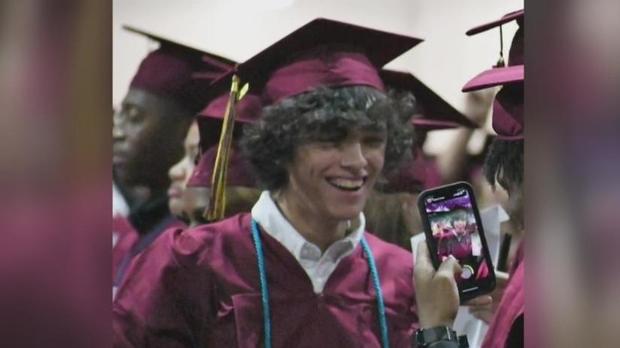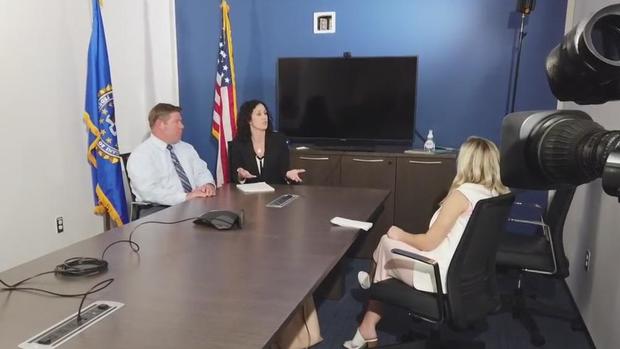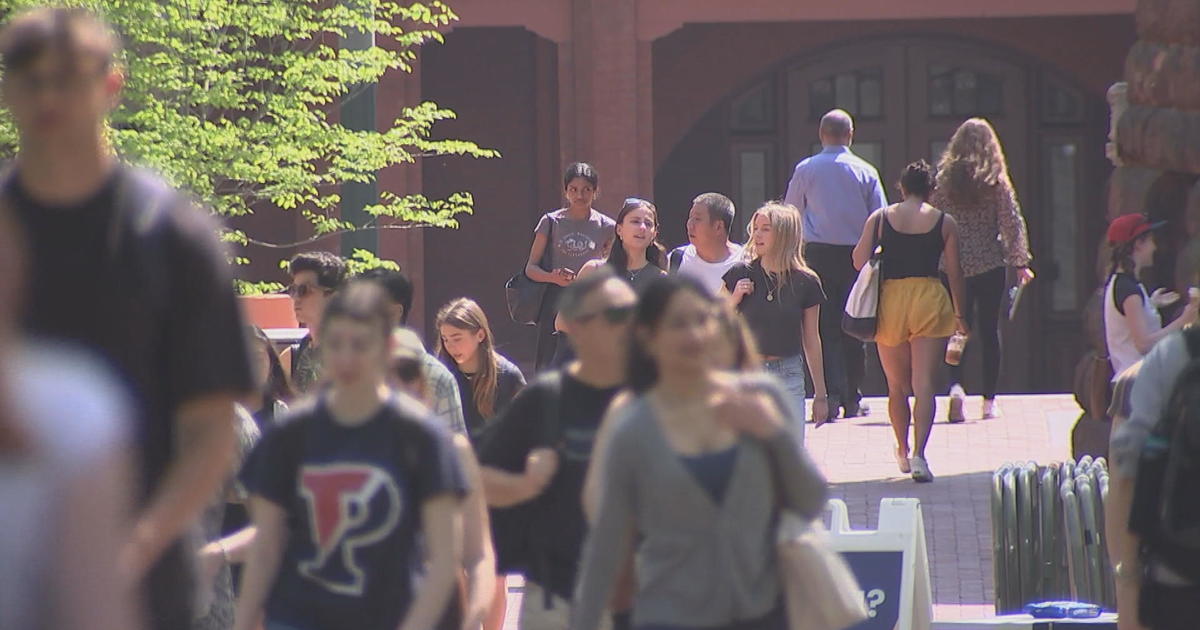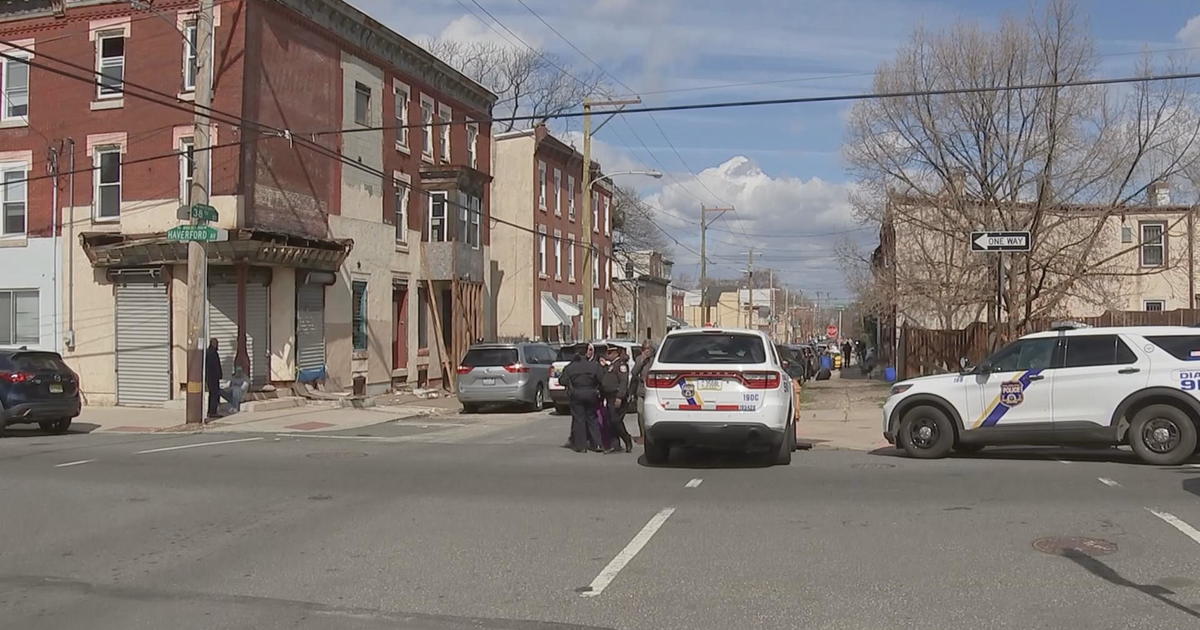How to spot and report teen sextortion scams | FBI resources available for victims
PHILADELPHIA (CBS) -- Now that school's out, many teenagers are spending more time on their phones. According to the FBI, an online crime they're calling "sextortion" is on the rise in the Philadelphia area.
The crime occurs when an adult poses as a young person online, convinces a teen to send sexually explicit photos or videos, and then starts blackmailing the child for money. It's led to at least a dozen teen suicides nationwide, including 17-year-old Gavin Guffey, according to the FBI.
Gavin Guffey had just graduated high school and his father, Brandon Guffey, said his son was thriving.
"He was living his best life. He was about to go to Winthrop University and wanted to be an art teacher," Brandon said.
But it all ended in a second late at night in July 2022.
Brandon heard a loud thud from the bathroom. He said it sounded like a bowling ball going through a shelf. When he broke through the door, he found his son laying there on the floor.
He thought he had slipped and hit his head.
"After I tried to stop the bleeding, I happen to look over and I'd seen the pistol laying there," Brandon said.
Days later, the family's shock was replaced with confusion.
"Within 48 hours, I knew Gavin was being blackmailed and in my mind, I'm like, 'What could he have done that was so horrific?'" Brandon said.
That's the first time Brandon, who is a state representative in South Carolina, learned about sextortion. Now, Guffey and his family are trying to spread awareness, and so is the FBI.
Alexis Krieger, a victims specialist with FBI Philadelphia said scammers often persuade teenagers to send over revealing images through reciprocity by first sending them a photo the scammer actually received from another victim. They'll use that tactic to entice the minor to send explicit pictures back to them.
The FBI said contact can come through any messaging platform including apps or video games. Once a scammer has the teen's picture, they flip the switch and demand more money or gift cards in exchange for not sending it to names on their contact list, friends or their parents.
Donald Asper, a supervisory special agent with FBI Philadelphia, said the scammers are making quick money off teenagers since the entire scheme happens in a few days.
"It's not just a single actor. You're looking at organizations, you're looking at people where this is their sole source of income," Asper said.
Brandon said his son's ordeal unfolded in less than two hours, with Gavin getting an Instagram message around midnight from someone he thought was a teenage girl and then took his life just before 2 a.m.
According to the FBI, 12 minors who were sextortion victims died by suicide last year. They were among at least 3,000 victims of the scam nationwide. The FBI recorded more than 7,000 reports of financial sextortion of minors in 2022.
In the Philadelphia area, there's been a nearly 700% increase in the number of sextortion complaints from 2021 to 2022, however, FBI Philadelphia did not release specific numbers.
Asper said many of the scammers are located overseas, making them harder to track down.
The FBI wants parents and caregivers to be aware of this scam and know that there are resources available to minors and families who might be caught up in a sextortion scam.
"We need the parents to interact with the children and identify that this is sextortion, this could potentially be a bad actor," Asper said.
Victims specialists with the FBI can partner with The National Center for Missing & Exploited Children to utilize a tool that combats child sexual exploitation and helps kids remove their sexually explicit images from the internet.
Krieger encourages parents to have encompassing conversations with their children so they know they can come to their parents, even if they did make a mistake in sending a sexually explicit photo.
"After the criminals have one or more videos or pictures, they threaten to publish that content, or they threaten violence, to get the victim to produce more images. The shame, fear, and confusion children feel when they are caught in this cycle often prevents them from asking for help or reporting the abuse," according to the FBI website.
How to Get Help
If young people are being exploited, they are the victim of a crime and should report it. Contact your local FBI field office, call 1-800-CALL-FBI, or report it online at tips.fbi.gov.
The FBI also has staff dedicated to assisting victims of crime. Learn more about our Victim Services Division and know your rights if you are the victim of sextortion and your images have been posted online.
If you or someone you know needs support now, call or text 988 or chat at 988lifeline.org. CBS News Philadelphia also has a list of mental health resources.







